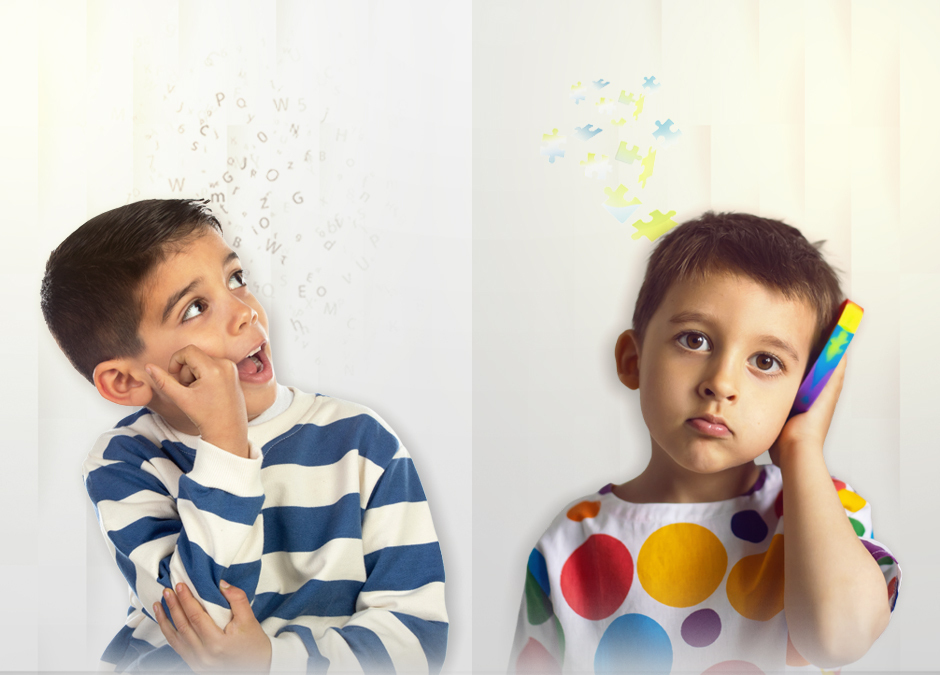Speech development is a crucial aspect of a child’s early milestones. However, when a child struggles with communication, parents often wonder if it’s due to a speech delay or something more complex like Autism. Although both conditions affect communication, they differ in causes, symptoms, and interventions.
What is Speech Delay?
Speech delay occurs when a child’s ability to produce or use words lags behind their peers. It might result from various factors like hearing impairments, oral-motor issues, or a lack of verbal stimulation. Speech-delayed children may still interact socially, use gestures, and show understanding, even if their verbal expression is limited.
Key Indicators of Speech Delay:
- The child has difficulty pronouncing words but understands instructions.
- Non-verbal communication, such as gestures or pointing, is used effectively.
- There is steady, albeit slow, progress in language development.
- The delay is often resolved with speech therapy and environmental support.
What is Autism?
Autism Spectrum Disorder (ASD) is a neurodevelopmental condition that impacts communication, social interaction, and behavior. Speech delays can be one of the early signs of Autism, but Autism also includes other distinct characteristics that go beyond speech.
Key Indicators of Autism:
- Difficulty in both verbal and non-verbal communication.
- Limited eye contact and challenges in social engagement.
- Repetitive behaviors or restricted interests.
- Echolalia (repeating words or phrases) without contextual understanding.
- Sensory sensitivities (to sound, touch, or light).
How to Differentiate?
While speech delay focuses primarily on verbal development, Autism affects multiple areas, including social and behavioral functioning. Here are some differences:
- Social Interaction:
- Speech Delay: The child is socially interactive and enjoys engaging with others despite limited vocabulary.
- Autism: The child may show limited interest in social interaction, avoid eye contact, or have trouble forming relationships.
- Behavior Patterns:
- Speech Delay: Typically does not involve repetitive behaviors or unusual fixations.
- Autism: May involve repetitive actions, restricted interests, or difficulty adjusting to change.
- Non-Verbal Communication:
- Speech Delay: Non-verbal cues like pointing or gestures are often used effectively.
- Autism: Non-verbal communication may be limited or atypical.
Seeking Professional Support
If you notice a delay in speech or suspect Autism, consulting a specialist is crucial. Speech-language pathologists can help address speech delays, while developmental pediatricians or psychologists evaluate Autism. Early diagnosis and intervention significantly improve outcomes.
Conclusion
Speech delay and Autism may share overlapping features, but their underlying causes and interventions differ. Recognizing the distinction ensures that children receive the appropriate support and therapies for their unique needs. Whether it’s a speech delay or Autism, understanding and timely action pave the way for a child’s optimal development.
Regards
Dr. Atul Madaan (Autism Specialist)
MAAP, MBA, MPhil (Clin. Psy), PhD (Psy)
Operational Head & Clinical Psychologist- Care For Autism (CFA)
8383849217
www.autismspecialist.co.in
𝐂𝐀𝐑𝐄 𝐅𝐎𝐑 𝐀𝐔𝐓𝐈𝐒𝐌 (CFA)
One-of-a-Kind Assessment & Remedial Training Centres for Special-needs Children.
📌 Ludhiana : 114, Green Field, Kochar Market Road, Near National Lab, 9646443200
📌 Jalandhar : Hoshiarpur Road, Mubarkpur Shekhein Pind, Under Bridge, Near Railway Crossing, 9779725400
#autismdoctorludhiana #autismdoctor #autismdoctorinludhiana #autismspecialist #bestautismdoctor #bestautismdoctorinludhiana #autismbestdoctor #bestautismcenter #bestautismconsultant #autismconsultant #autismludhiana #autismspecialistinludhiana #atulmadaan #dratulmadaan #autismtreatmentludhiana #autismtreatment #careforautism #autismmyths

Leave a Reply